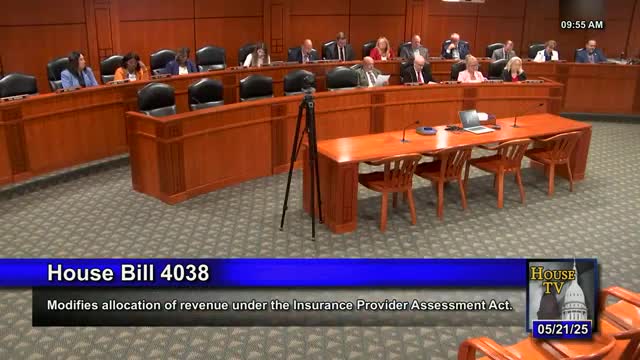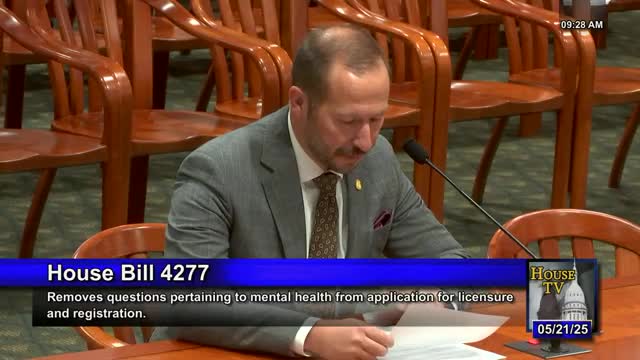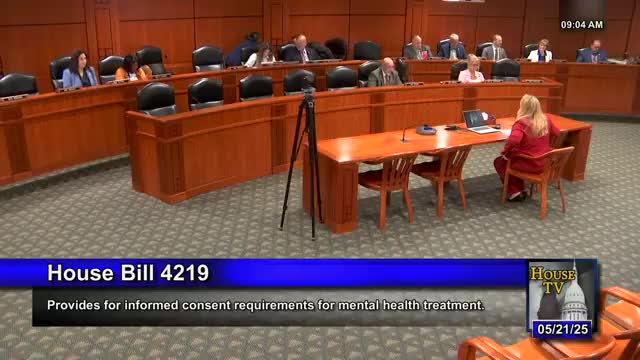Article not found
This article is no longer available. But don't worry—we've gathered other articles that discuss the same topic.

Committee adopts substitutes and reports two health bills to the House floor

Committee considers bill to bar intrusive mental-health questions on professional licensing applications

